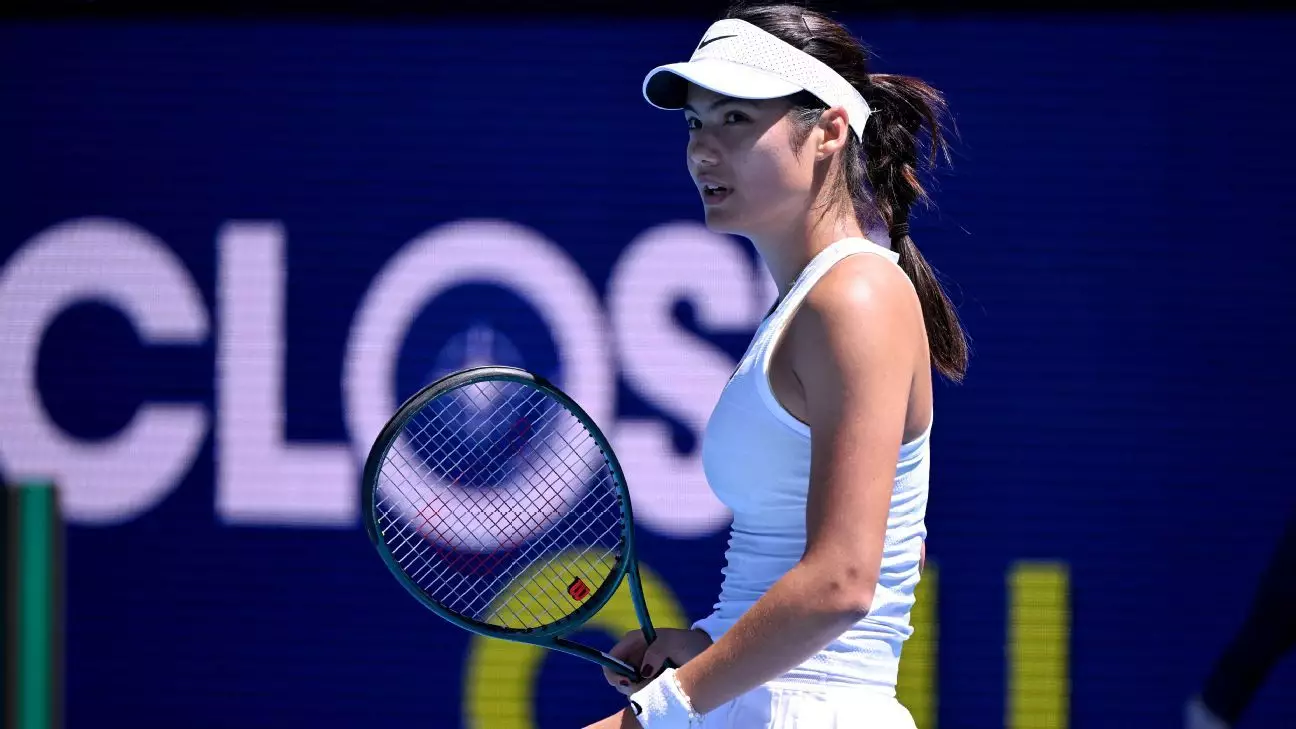In the world of sports, relationships between athletes can be intricate and multifaceted. The tennis scene, epitomized by the intersection of rising stars and established legends, vividly showcases this dynamic. Emma Raducanu, a young star who captured the hearts of tennis fans with her remarkable performance at the 2021 US Open, recently found herself navigating a challenging emotional terrain due to her withdrawal from a mixed doubles match with veteran Andy Murray. The incident unfolded during Murray’s emotional farewell from Wimbledon, leaving behind a cloud of apprehension about their rapport.
Raducanu’s decision to withdraw stemmed from discomfort in her right wrist, which was a significant factor as she progressed toward the women’s singles fourth round. The increased pressure of competing, especially under the keen gaze of the British public, may have exacerbated her physical condition. While many might view this as an unfortunate but necessary choice for an athlete’s health, Raducanu’s concern about creating “bad blood” with Murray underscores her respect for the tennis community and her desire to foster positive relationships, even in high-pressure situations.
Murray represents a figure of immense experience, having built a legacy over his extensive career. To Raducanu, who has idolized him, disappointing someone of his stature seemed like a potential breach of a relationship that was still in its infancy. This anxiety is not merely a personal concern; it highlights the emotional toll that competitive sports can exert on young athletes trying to make their mark.
It’s noteworthy that Raducanu was proactive in addressing the situation. Post-match, she took the initiative to reach out to Murray with a heartfelt apology, illustrating her maturity and understanding of the nuances of their relationship. Her acknowledgment of his disappointment yet appreciation for his understanding reflects a willingness to mend any rift that may have formed. The simplicity of their greetings—sharing ‘hellos’ and minor congratulations—reveals a mutual respect that has prevailed beyond the circumstances of Wimbledon.
Such exchanges are emblematic of the support system that exists in professional sports, where athletes often look out for one another, regardless of their competitive stage. Murray’s transition into a coaching role also signifies his ongoing contribution to the sport and his commitment to fostering nascent talent like Raducanu.
Looking ahead to her showdown with world no. 2, Iga Swiatek, Raducanu seems poised to embrace this next challenge with a refreshed mindset. Despite recent medical concerns during her match against Amanda Anisimova, she expressed excitement about this new opportunity rather than succumbing to external pressures. Her statement illustrating the absence of expectations allows for a liberating approach to performance, emphasizing personal satisfaction and growth over mere victories.
Ultimately, Raducanu’s journey extends beyond the tennis court; it encapsulates the challenges of emerging into a competitive environment while nurturing valuable relationships. The episode with Murray serves as a powerful reminder of the shared humanity within athletics, reinforcing that every athlete, regardless of experience, seeks connection and understanding amidst the fierce competition.


Leave a Reply